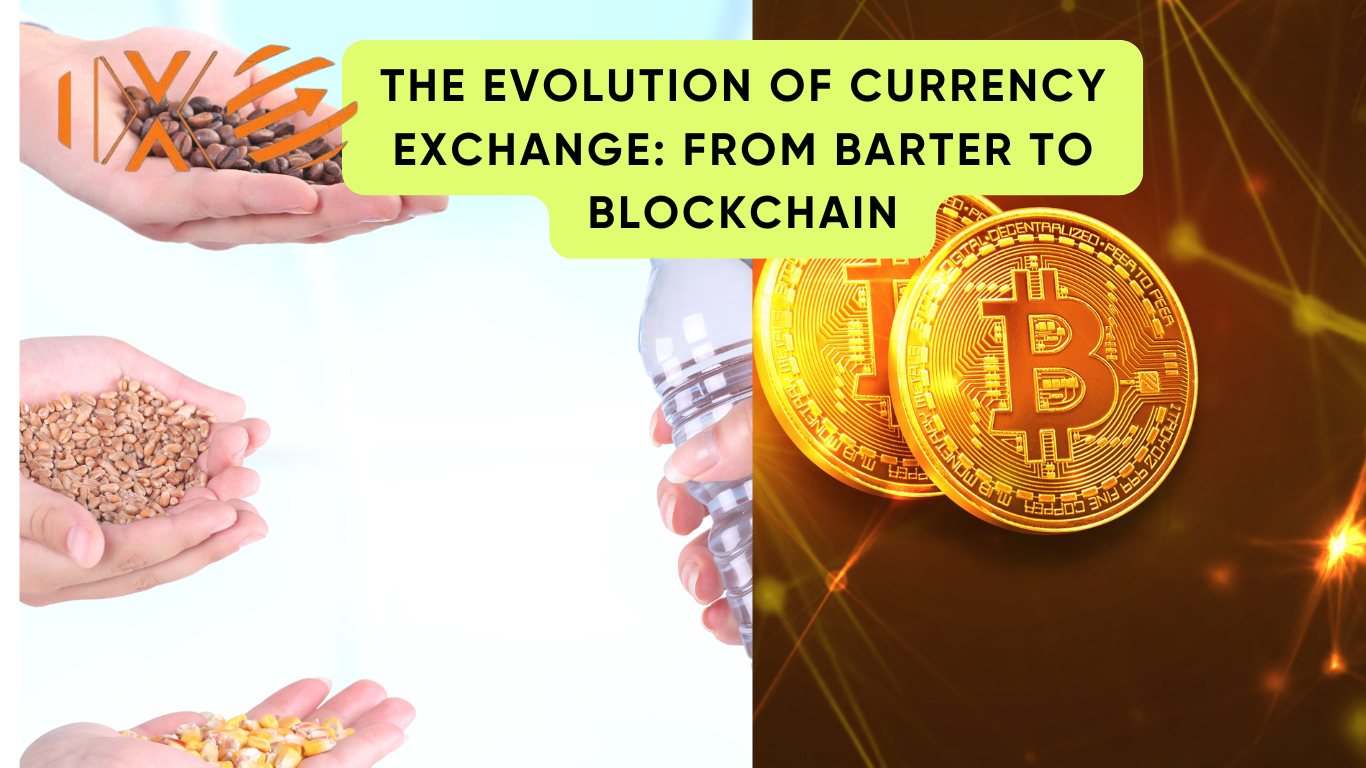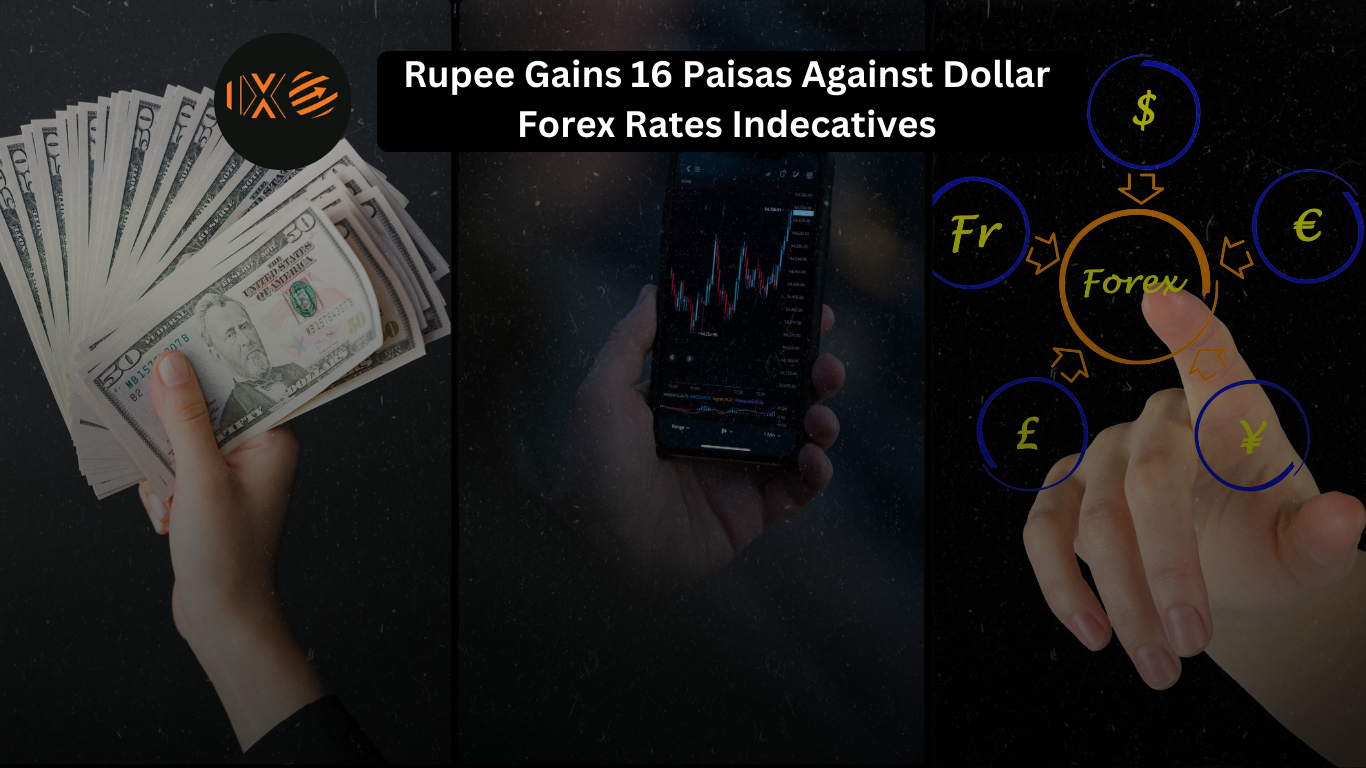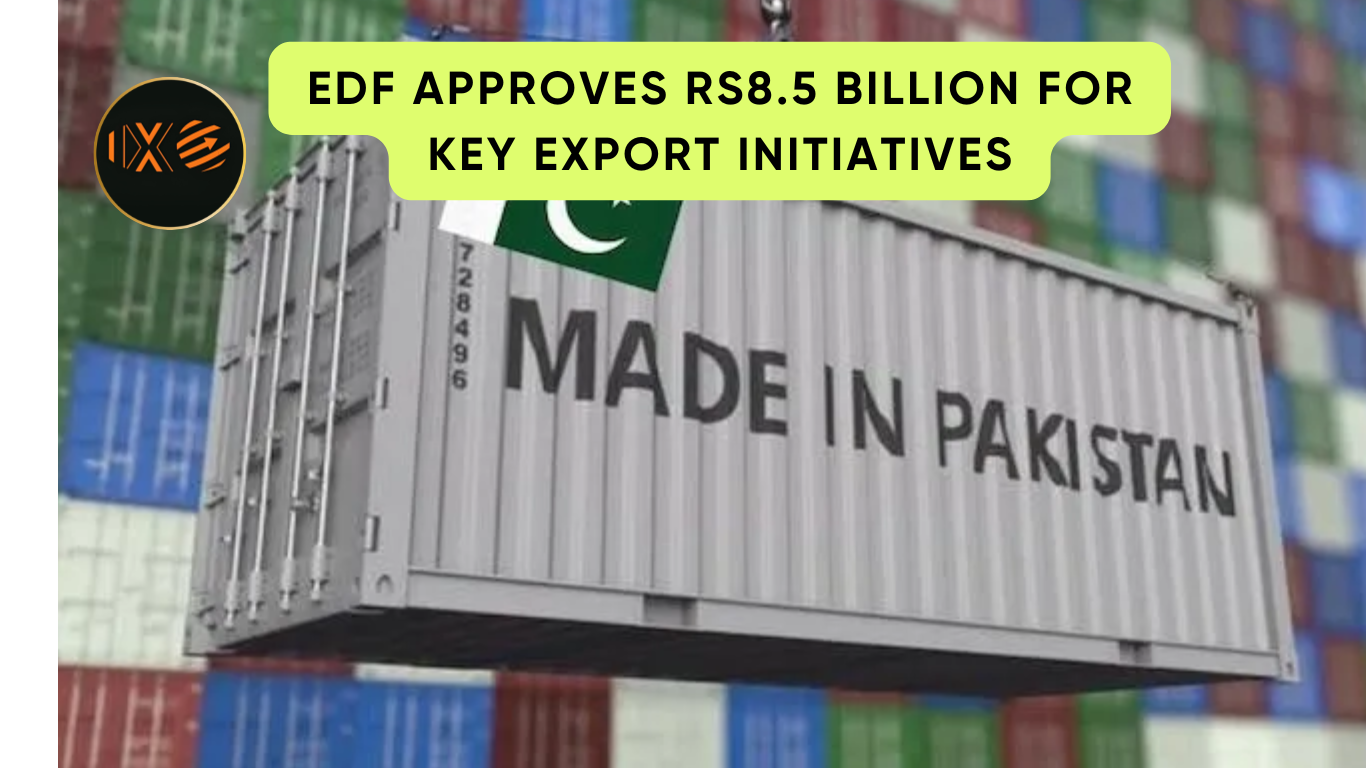Introduction
The history of currency exchange is a fascinating journey that reflects the evolution of human civilization. From the simple barter system to the complexities of digital currencies and blockchain technology, the methods of trade and exchange have transformed significantly. This blog post delves into the various stages of currency exchange, examining how each phase has shaped modern financial systems and practices.
1. The Barter System: The Dawn of Trade
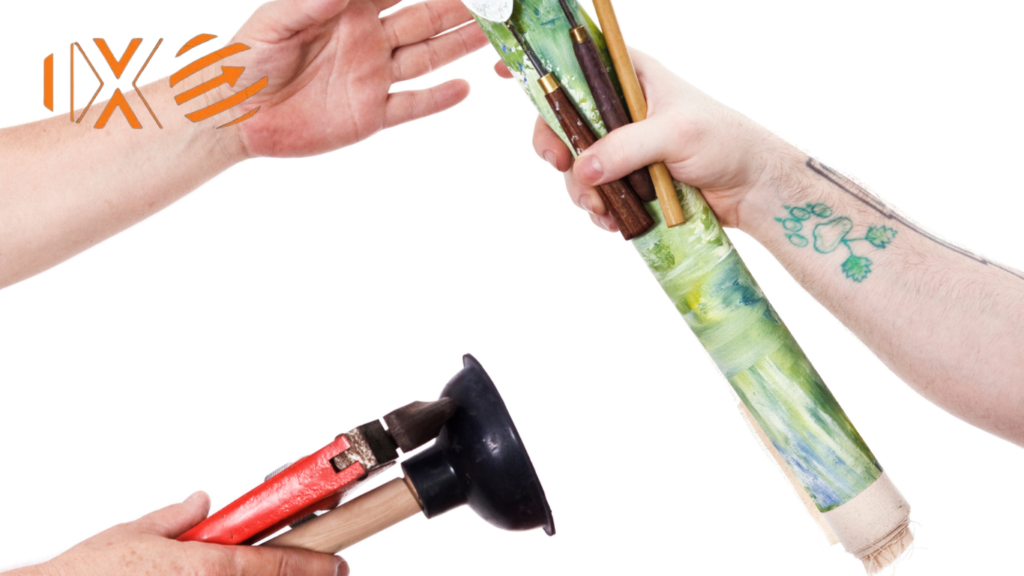
1.1 What is Barter?
Barter is one of the earliest forms of economic exchange, where goods and services were directly exchanged for other goods and services without a standard unit of value. For instance, a farmer could trade a bushel of wheat for a tool made by a blacksmith.
1.2 Limitations of Barter
While barter facilitated trade, it had significant limitations:
- Double Coincidence of Wants: Both parties had to want what the other offered.
- Lack of Standardization: Determining the relative value of goods was often subjective.
- Difficulty in Storing Value: Perishable goods couldn’t be saved for future use.
2. The Introduction of Money
2.1 The Need for a Medium of Exchange
As societies grew, the limitations of barter became increasingly apparent. There was a need for a standardized medium of exchange that could simplify transactions.
2.2 The First Forms of Money
The first forms of money were commodity money, which included items like:
- Shells: Used in various cultures, particularly in the Pacific Islands.
- Precious Metals: Gold and silver became popular due to their inherent value and divisibility.
2.3 The Role of Coins
The introduction of coins around 600 BC marked a significant milestone in currency exchange. Coins provided a standardized value, which made trade easier and more efficient. They were widely accepted and facilitated international trade.
3. The Emergence of Paper Currency
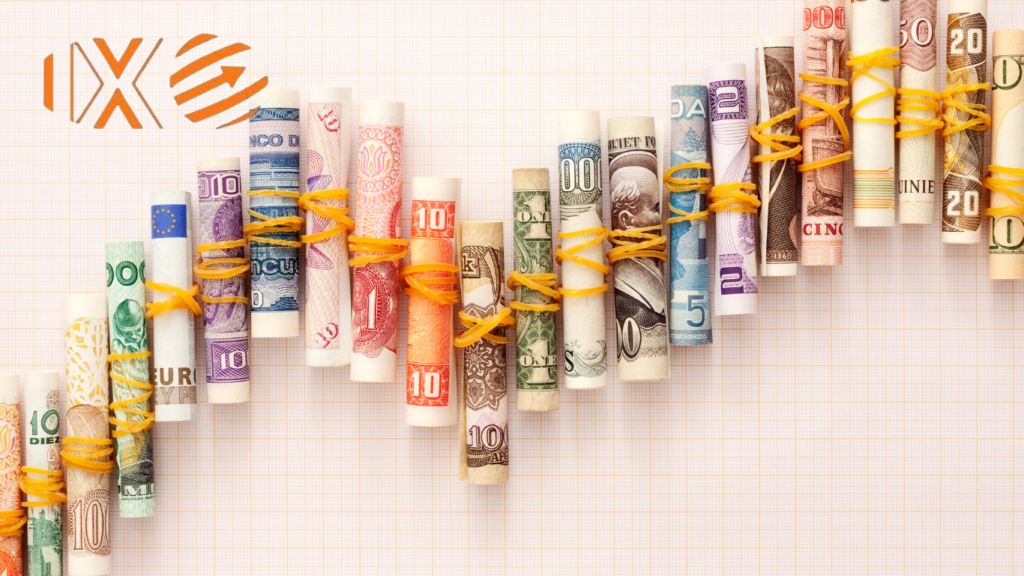
3.1 The Invention of Paper Money
The Chinese were the first to introduce paper money in the 7th century AD. This innovation allowed for easier transactions compared to heavy coins and helped in the expansion of trade networks.
3.2 The Spread of Paper Currency
By the 17th century, paper currency spread to Europe, with banks issuing notes that represented a promise to pay the bearer a certain amount of gold or silver. This evolution laid the groundwork for modern banking systems.
4. The Gold Standard

4.1 What is the Gold Standard?
The gold standard is a monetary system where a country’s currency or paper money has a value directly linked to gold. Under this system, countries agreed to convert currency into a fixed amount of gold.
4.2 Advantages and Disadvantages
- Advantages:
- Stability in currency value.
- Limited inflation, as the money supply is tied to gold reserves.
- Disadvantages:
- Inflexibility in monetary policy.
- Economic crises could arise when gold supplies were inadequate.
4.3 The End of the Gold Standard
The gold standard was abandoned during the 20th century, particularly after the Great Depression. This led to the emergence of fiat currency, which is not backed by physical commodities but derives its value from government regulation and trust.
5. Modern Currency Exchange
5.1 The Rise of Fiat Currency
Fiat currency is the most commonly used form of money today. Its value is based on trust in the issuing government rather than a physical commodity.
5.2 Currency Exchange Markets
With globalization, currency exchange markets became essential for facilitating international trade and investment. The foreign exchange (Forex) market operates 24/7, allowing traders to buy and sell currencies.
5.3 The Role of Banks and Financial Institutions
Banks and financial institutions play a crucial role in currency exchange by providing services such as:
- Currency conversion.
- International remittance.
- Hedging against currency risks.
6. The Digital Age and Online Currency Exchange
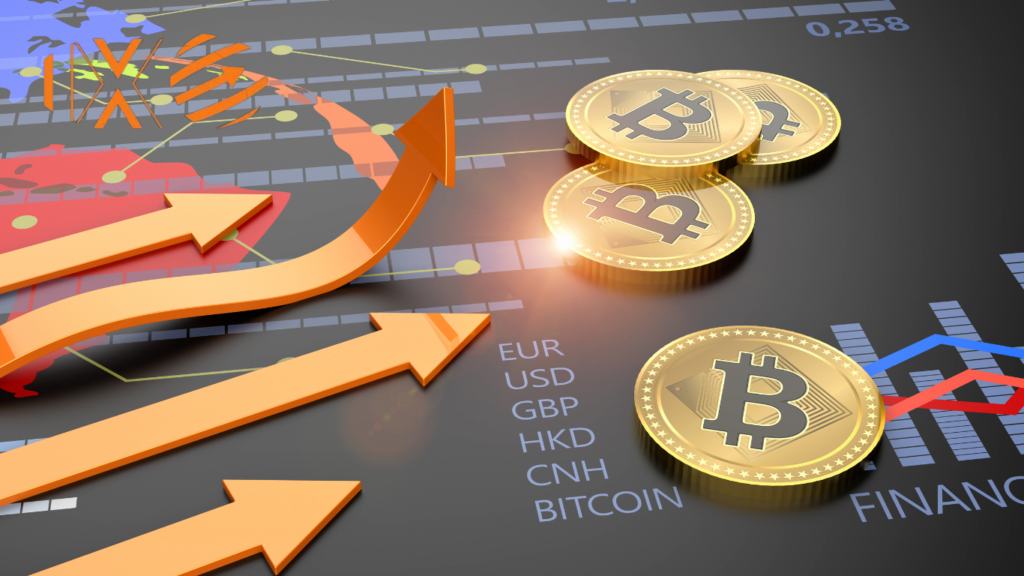
6.1 The Internet Revolution
The advent of the internet transformed how people engage in currency exchange. Online platforms emerged, allowing individuals and businesses to exchange currencies at their convenience.
6.2 The Rise of Fintech
Financial technology (fintech) companies have disrupted traditional banking by offering innovative currency exchange solutions. These platforms often provide lower fees and better exchange rates.
6.3 Challenges of Online Currency Exchange
Despite its advantages, online currency exchange poses challenges such as:
- Security Risks: Cybersecurity threats can jeopardize transactions.
- Regulatory Issues: Different countries have varying regulations governing online exchanges.
7. Cryptocurrencies: The Future of Currency Exchange
7.1 Introduction to Cryptocurrencies
Cryptocurrencies are digital or virtual currencies that use cryptography for security. Bitcoin, created in 2009, was the first decentralized cryptocurrency.
7.2 The Impact of Blockchain Technology
Blockchain technology underpins cryptocurrencies, providing a secure and transparent way to record transactions. It has the potential to revolutionize currency exchange by eliminating intermediaries, reducing costs, and enhancing security.
7.3 Advantages of Cryptocurrencies
- Decentralization: No central authority controls the currency, providing users with more control.
- Lower Transaction Fees: Cryptocurrency transactions often have lower fees compared to traditional exchanges.
- Global Accessibility: Cryptocurrencies can be accessed by anyone with an internet connection.
7.4 Challenges Facing Cryptocurrencies
- Volatility: Cryptocurrency values can fluctuate dramatically, posing risks for investors.
- Regulatory Scrutiny: Governments are still figuring out how to regulate cryptocurrencies.
8. The Future of Currency Exchange
8.1 Trends Shaping Currency Exchange
- Increased Adoption of Cryptocurrencies: As more people embrace digital currencies, the currency exchange landscape will continue to evolve.
- Enhanced Security Measures: With cyber threats on the rise, robust security protocols will be essential.
- Integration of AI and Machine Learning: These technologies can help in predicting currency trends and enhancing trading strategies.
8.2 The Role of Traditional Currency Exchange Services
Despite the rise of digital currencies, traditional currency exchange services remain vital. They provide essential services for travelers and businesses, especially in regions with limited access to digital platforms.
Conclusion
The evolution of currency exchange reflects humanity’s ongoing quest for more efficient and secure ways to facilitate trade. From barter to blockchain, each phase has contributed to the complex financial systems we rely on today. As we look to the future, it’s clear that the landscape will continue to change, influenced by technological advancements and shifts in consumer behavior.
Islamabad Exchange Company: Your Trusted Partner in Currency Exchange
Islamabad Exchange Company is your go-to choice for currency exchange in Islamabad. We serve a wide range of sectors, including E9, E11, F11, F-10, F-8, F-7, F-6, F-5, G-5, G-6, G-7, G-8, G-9, G-10, G-11, G-13, H-8, H-9, I-8, I-9, and I-10. Our services also extend to the Blue Area, Rawalpindi, and Peshawar.
We prioritize customer satisfaction and ensure a seamless experience for all your currency transactions. Our services range from traditional money changers to modern foreign exchange solutions. If you’re looking for money exchange near you, our branches in the Blue Area and F-10 are conveniently located. We offer competitive rates for a variety of currencies, including USD to PKR, GBP to PKR, EUR to PKR, SAR to PKR, AED to PKR, AUD to PKR, CAD to PKR, Thai Baht to PKR, Yuan to PKR, Yen to PKR, and Lira to PKR.
- 🚀 Fast, secure currency exchange at competitive rates
- 🌐 Real-time rates at Islamabad Exchange Company
- ✅ Smooth, transparent, and reliable service
- 📞 051-2809751-52, 051-2105491
- 📱 0330-1112227
Quick Links
- Home: Learn more about our services and get real-time updates on exchange rates.
- About Us: Discover our mission and commitment to providing secure and competitive currency exchange services.
- Contact: Reach out to us with any queries or for assistance with your currency exchange needs.
- Blog: Stay updated with our latest articles and tips on currency exchange and financial management.
